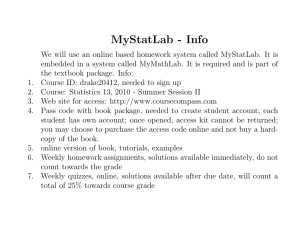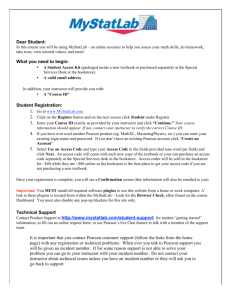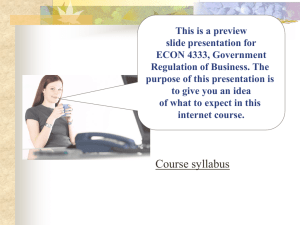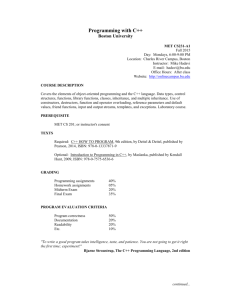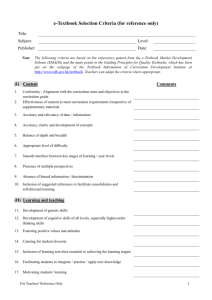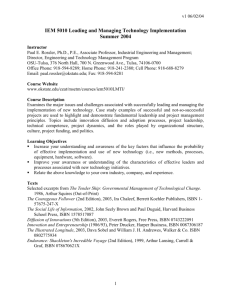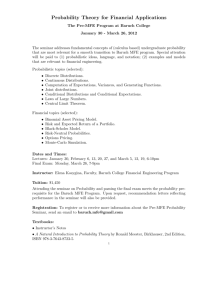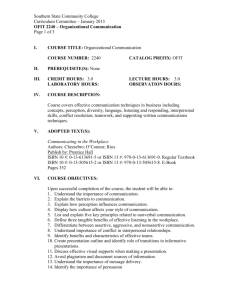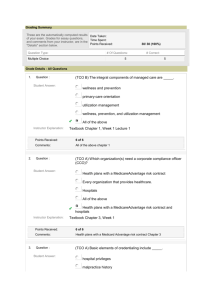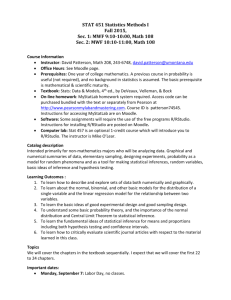Math 109
advertisement
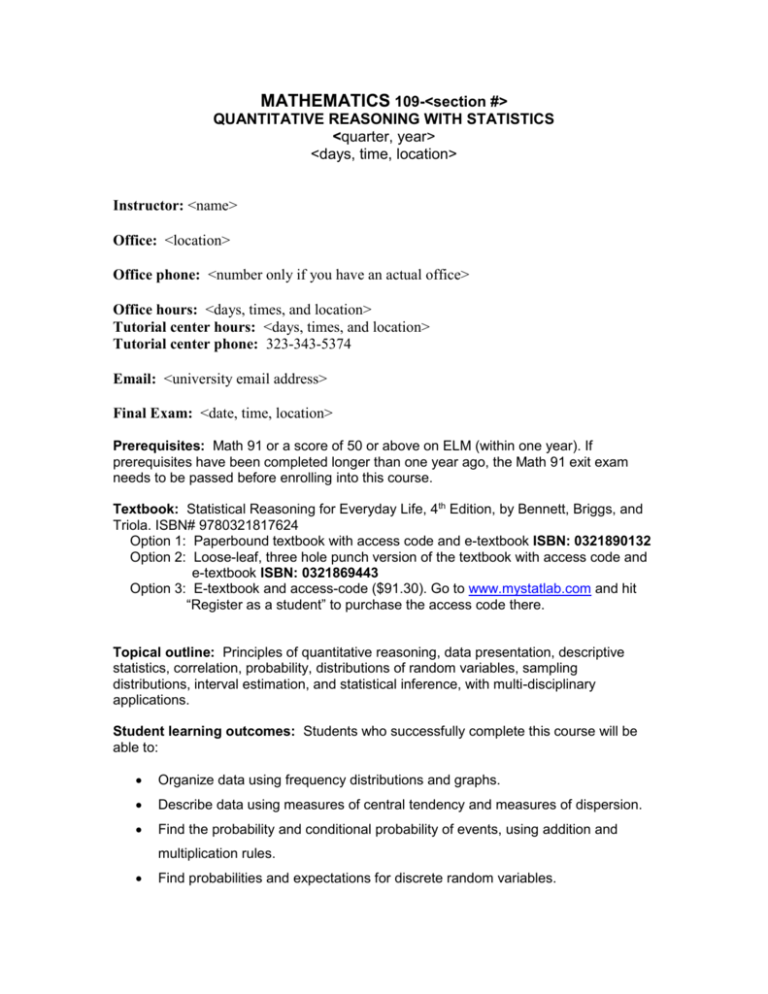
MATHEMATICS 109-<section #> QUANTITATIVE REASONING WITH STATISTICS <quarter, year> <days, time, location> Instructor: <name> Office: <location> Office phone: <number only if you have an actual office> Office hours: <days, times, and location> Tutorial center hours: <days, times, and location> Tutorial center phone: 323-343-5374 Email: <university email address> Final Exam: <date, time, location> Prerequisites: Math 91 or a score of 50 or above on ELM (within one year). If prerequisites have been completed longer than one year ago, the Math 91 exit exam needs to be passed before enrolling into this course. Textbook: Statistical Reasoning for Everyday Life, 4th Edition, by Bennett, Briggs, and Triola. ISBN# 9780321817624 Option 1: Paperbound textbook with access code and e-textbook ISBN: 0321890132 Option 2: Loose-leaf, three hole punch version of the textbook with access code and e-textbook ISBN: 0321869443 Option 3: E-textbook and access-code ($91.30). Go to www.mystatlab.com and hit “Register as a student” to purchase the access code there. Topical outline: Principles of quantitative reasoning, data presentation, descriptive statistics, correlation, probability, distributions of random variables, sampling distributions, interval estimation, and statistical inference, with multi-disciplinary applications. Student learning outcomes: Students who successfully complete this course will be able to: Organize data using frequency distributions and graphs. Describe data using measures of central tendency and measures of dispersion. Find the probability and conditional probability of events, using addition and multiplication rules. Find probabilities and expectations for discrete random variables. Find probabilities and data values using the area under the standard normal distribution. Find confidence intervals for population means and proportions. Test hypotheses for a population mean, using z-test and p-value method. Find correlation coefficient and apply linear regression to make predictions. This course satisfies General Education Area A4; it is graded ABC/NC Grading system: <instructor’s grading system; make sure to weigh online homework with MyStatLab with at least 10%> Date and time of final exam: <provide this information> ADA statement: Reasonable accommodation will be provided to any student who is registered with the Office of Students with Disabilities and requests needed accommodation. Academic honesty statement: Students are expected to do their own work. Copying the work of others, cheating on exams, and similar violations will be reported to the University Discipline Officer, who has the authority to take disciplinary actions against students who violate the standards of academic honesty. Student responsibilities: Students are responsible for being aware of all announcements that are made in class, such as changes in exam dates, due dates of homework and papers, and cancellation of class due to instructor’s absence. Students are responsible for announcements made on days that they are absent. Students must check their CSULA email account regularly for information from the instructor and the Department. Failure to do so may result in missed deadlines or other consequences that might adversely affect students. Note that you can forward this email account to any other account of your choosing.

